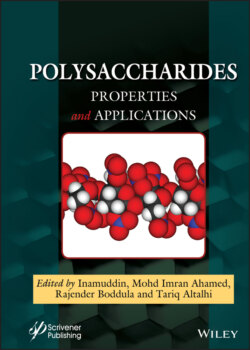Читать книгу Polysaccharides - Группа авторов - Страница 81
3.4.3.6 Fucoidan
ОглавлениеFucoidan is an essential as a functional food preventing diseases and encouraging wellbeing, thus exhibiting anti-tumour, immunomodulatory, anti-microbial, hepatoprotective, anti-inflammatory, anti-oxidant and anti-coagulant activities [192]. The heparin cofactor-II inhibits thrombin and factor Xa along with the other factors of coagulation through fucoidan [193]. It was also found to have anti-viral activities by binding to the glycoproteins of the viral envelope and preventing host cell attachment through charge-based interactions [194]. Choie et al. studied macrophages treated with different concentrations of fucoidan (10–100 µg/ml). The macrophages treated with fucoidan were found to exhibit higher anticancer activity by increased phagocytosis, production of lyzosomal enzymes, H2O2, NO radicals, tumor necrosis factor and interleukins [195]. The antioxidant activity of fucoidan extracted from several marine organisms such as F. vesciculosus, P. gymnospora, Dictyota cerviconi, S. vulgare, P. boergesenii, S. cristaefolium, Lobophora variegate, Cystoseira barbata and Dictyopteris delicatula has been studied. Despite different methods of extraction, they were found to scavenge free radicals, possess ferric-reducing potential, reduce hydroxyl mediated DNA damage and have efficient chelating ability [196]. Matsumoto et al. reported fucoidan as an effective treatment strategy for chronic colitis in mice [197]; and the hypothesized mechanism of downregulation in colonic epithelial cells was demonstrated [198]. Fucoidan also activated lipid metabolizing enzymes and stimulating the expression of lipoproteins, thus acting as a barrier against atherosclerosis [199].
